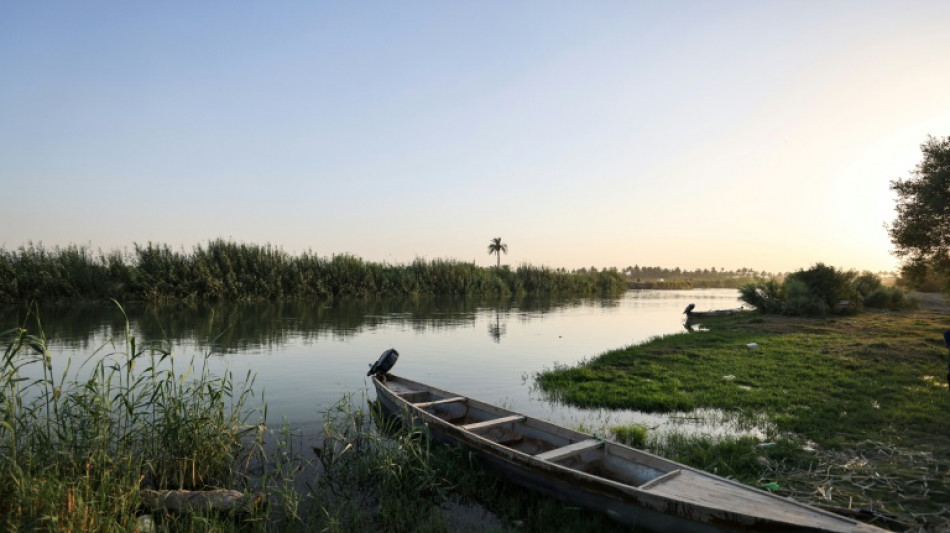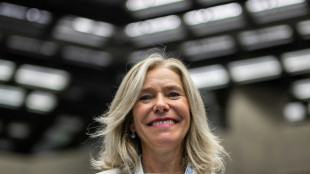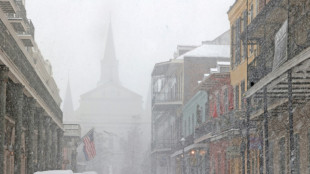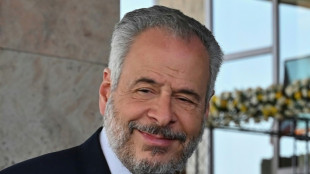
| RBGPF | 0.26% | 62.36 | $ | |
| RYCEF | 2.28% | 7.44 | $ | |
| CMSC | -0.47% | 23.44 | $ | |
| GSK | -0.37% | 33.655 | $ | |
| SCS | -1.03% | 11.68 | $ | |
| CMSD | 0.04% | 24.01 | $ | |
| RELX | -0.34% | 49.38 | $ | |
| RIO | -0.58% | 61.375 | $ | |
| BCC | -0.44% | 128.55 | $ | |
| JRI | 0.16% | 12.59 | $ | |
| VOD | -1.5% | 8.424 | $ | |
| AZN | 0.22% | 68.11 | $ | |
| NGG | -2.16% | 60.285 | $ | |
| BTI | -0.88% | 36.41 | $ | |
| BP | -0.43% | 31.385 | $ | |
| BCE | -1.37% | 23.075 | $ |

Iraq's extreme temperatures a 'wake-up call' for world: UN
Iraq's rising temperatures and protracted drought are a "wake-up call" for the world, United Nations human rights chief Volker Turk said in Baghdad on Wednesday.
Turk spoke to AFP during a visit to Iraq, which the UN says is one of the five countries in the world most touched by some effects of climate change.
Iraq has been experiencing its fourth consecutive summer of drought, and temperatures in parts of the country including the capital Baghdad, and in the far south, have been around 50 degrees Celsius (120 degrees Fahrenheit).
"Rising temperatures plus the drought, and the fact that the loss of diversity is a reality, is a wake-up call for Iraq and for the world," Turk said.
"When we look into the situation of these communities we look into our future," he added.
"The era of global boiling has come and here we can live it and see it on a daily basis," Turk said at the end of his four-day visit, echoing comments by UN Secretary-General Antonio Guterres last month.
Guterres had said: "The era of global warming has ended. The era of global boiling has arrived." He called for immediate and bold action, after scientists confirmed July was on track to be the hottest month in recorded history.
In addition to declining rainfall and rising temperatures, Iraqi authorities say upstream dam construction by Turkey and Iran has affected the volume of water in the Tigris and Euphrates rivers through Iraq.
In Iraq's far south, high salinity has harmed fishing in the Shatt al-Arab waterway, where the Tigris and Euphrates converge before spilling into the Gulf.
Turk, who visited the south, told a news conference that he was shown by community leaders and others "pictures of the lush date palm trees that -- just 30 years ago -- lined parts of the now dried-up Shatt al-Arab waterway".
Iraqi Prime Minister Mohamed Shia al-Sudani has vowed that battling climate change would be one of his priorities, but activists say little has been done.
Turk told the news conference there had been reports "of violence, intimidation and death threats against environmental activists" in Iraq.
One of them, engineer Jassim al-Assadi of Nature Iraq, the country's leading conservation group, was abducted for two weeks in February and held by armed men.
A.MacCodrum--NG



